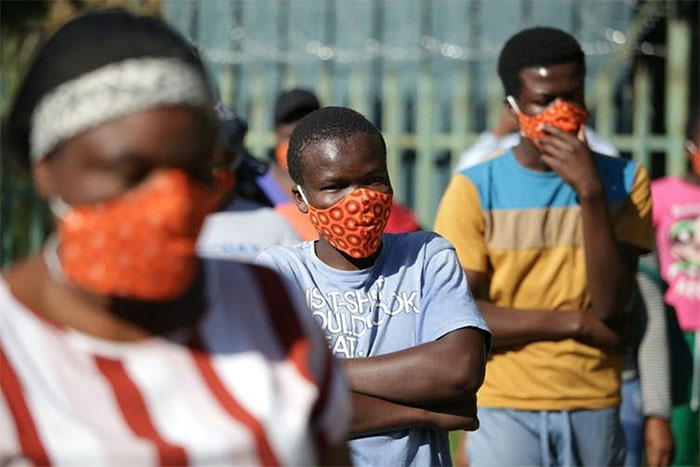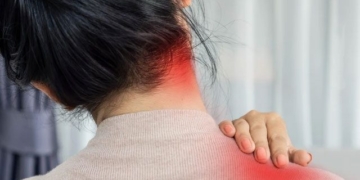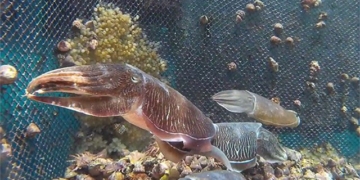According to experts, cloth masks remain effective in protecting individuals from Covid-19, including the Omicron variant, as long as they fit well and are made from appropriate materials.
Associate Professor Natasha Howard from the Saw Swee Hock School of Public Health at the National University of Singapore (NUS) states that the crucial factor lies in the fabric of the mask. Masks should have at least two layers, a nose bridge, and a proper fit.
The Centers for Disease Control and Prevention (CDC) in the United States recently updated its mask guidance. According to their recommendations, N95 masks provide the best protection, while “masks made from loosely woven fabric” offer the least protection, emphasizing the importance of a proper fit.

Experts assert that cloth masks still provide a certain level of protection against Covid-19, including the Omicron variant. (Image: AFP).
N95 masks are commonly used by healthcare professionals, capable of filtering out respiratory droplets and smaller aerosol particles when worn correctly. The KN95 mask, the Chinese version of the N95, operates on a similar principle.
Professor Dale Fisher, a senior consultant at the Department of Infectious Diseases at the National University Hospital in Singapore, believes that high-quality cloth masks are still “very effective” as long as they are worn correctly and combined with social distancing and hand hygiene.
Meanwhile, according to Professor Fisher at the Yong Loo Lin School of Medicine at NUS: “The most important factor is that they must have three layers, with an inner layer made of absorbent material, such as cotton, a middle layer of non-woven filter material like polypropylene, and an outer layer that is water-resistant, such as polyester.”
He added that the masks must be comfortable and fit snugly over the mouth and nose. Although the transmission method of the virus has not changed, the more transmissible Omicron variant is likely to exploit any lapses in infection control.
Can cloth masks protect against the Omicron variant?
Professor Lam Yeng Ming, head of the Department of Materials Science and Engineering at Nanyang Technological University, Singapore, stated that cloth masks provide a certain level of protection against Omicron, with more layers of fabric offering better protection; however, they must be worn correctly to cover the face adequately.
However, he also noted that due to the Omicron variant’s “much higher transmissibility,” there may be a need for higher-filtration masks, such as N95 or KN95.
Experts recommend that the public purchase high-quality cloth masks with 2 to 3 layers and avoid masks with exhalation valves. Professor Lam also suggests looking for masks with PFE (Particle Filtration Efficiency) and BFE (Bacterial Filtration Efficiency) certifications.
Antibacterial masks with an N95 filter layer have a PFE of over 95% and can last for about 30 weeks if cleaned weekly.
In a mask guide on its website, the Singapore Health Sciences Authority stated that generally, mask materials should be opaque when held up to light. They recommend that users of reusable masks follow the manufacturer’s guidelines on washing and replacing them after the specified number of uses.


















































